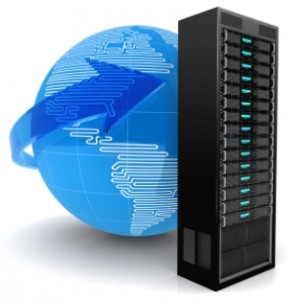 A server is a device on a network that manages network resources. Most commonly we mean a specialized computer on a network, but there are other types of servers, too such as game servers. Servers can be dedicated to just one function, such as storing and managing shared files, managing print jobs for one or more printers on the network, housing a database, or running specific computer programs. A server can also be used for more than one of these or other functions. The most common use for a server in the business environment is as a dedicated file server. Unlike a desktop computer, a dedicated server is built to withstand the additional performance demands of managing, storing and sending data 24-hours-per day. A business server must be incredibly reliable under these circumstances, and it will typically have specialized hardware and software that you won’t find in a conventional desktop computer. Why not contact https://www.hostiserver.com/ if you are looking to create a dedicated server!
A server is a device on a network that manages network resources. Most commonly we mean a specialized computer on a network, but there are other types of servers, too such as game servers. Servers can be dedicated to just one function, such as storing and managing shared files, managing print jobs for one or more printers on the network, housing a database, or running specific computer programs. A server can also be used for more than one of these or other functions. The most common use for a server in the business environment is as a dedicated file server. Unlike a desktop computer, a dedicated server is built to withstand the additional performance demands of managing, storing and sending data 24-hours-per day. A business server must be incredibly reliable under these circumstances, and it will typically have specialized hardware and software that you won’t find in a conventional desktop computer. Why not contact https://www.hostiserver.com/ if you are looking to create a dedicated server!
Once a business grows to five or six employees, it is time to at least consider getting a server and implementing a “client-server” network. Many businesses operate using a “peer-to-peer” network, where multiple desktop workstations might connect directly to one-another. This arrangement becomes less efficient and secure once the number of workstations grows to five or six in number. Acquiring a server and building a client-server network will increase the efficiency of resource sharing across the network, make it easier to manage malware and security (with help from SeedboxCo.net and other firms), and increase reliability of the network. For instance, the server can provide all users on the network with a centralized storage point, centralized backup, and one point of antivirus protection – something that gets pretty hairy if you’re trying to ensure five, six or more desktops each individually have up-to-date protection. You could implement a rackmount monitor to your system, like those featured here (https://www.rackmountsales.com/), to make accessing your system an easier process. Servers are usually equipped with backup-power, so reliability and freedom from data loss become less of a concern than if you are relying on the health of all those desktop workstations. Many business owners dismiss the idea of adding a server due to the perceived cost or lack of an in-house IT department. But a server does not need to be extraordinarily expensive or require an on-site maintenance team. In fact, given the gains in productivity and security, a server could end up being a great investment in the business. And outsourced IT service companies, like Invision, can provide the only IT maintenance you’re likely to need, which isn’t as often as you might think! If you purchase a server, you’ll want to use the services of a qualified technician to set it up, install the necessary software and configure it properly. In fact, when you are ready to start server shopping, get that professional help involved early in the process. They can help make sure you are purchasing the right combination of operating system, applications, storage and other factors that add up to the best solution for your business’ unique needs.



